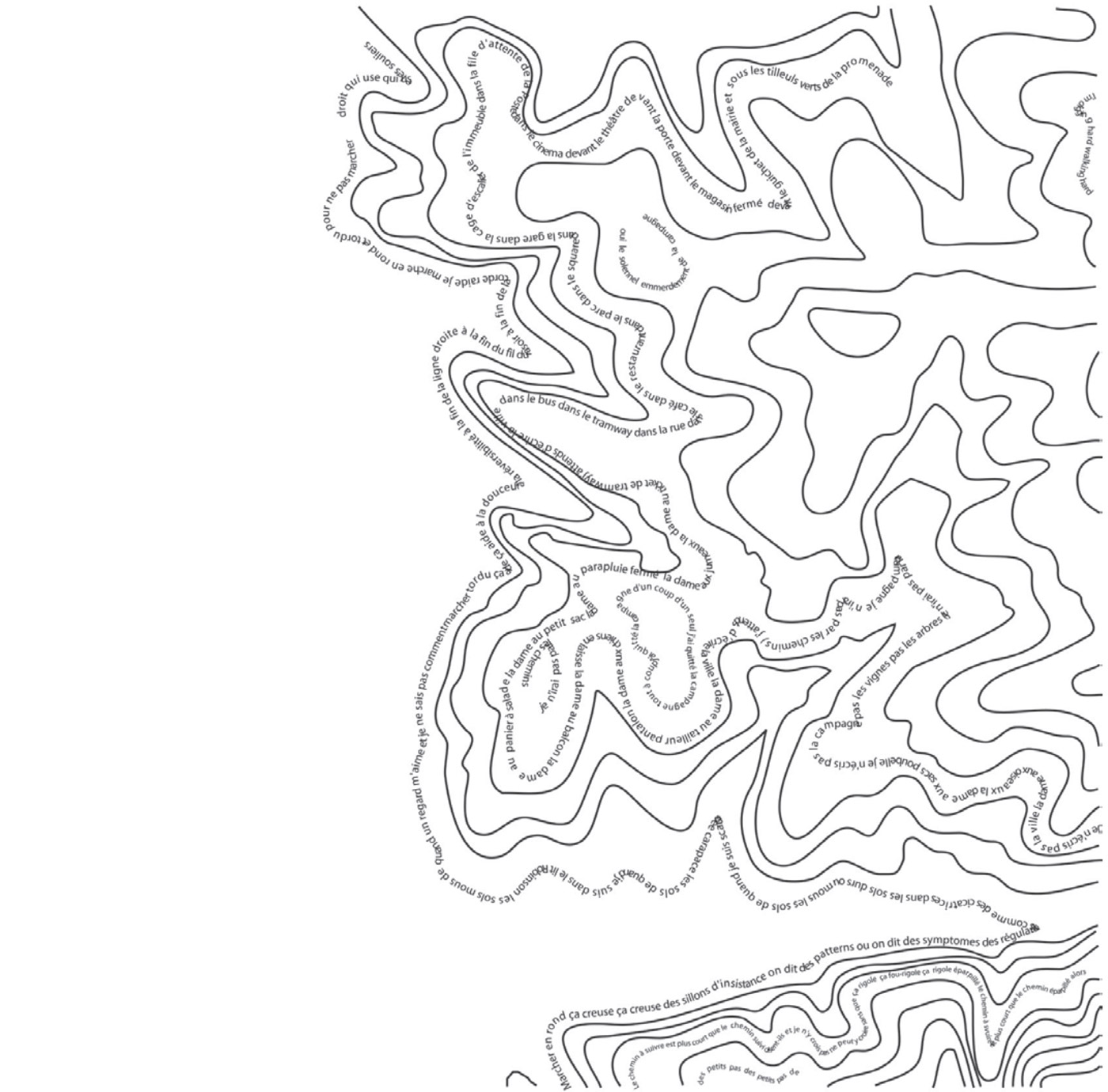Eva O. Ettel shapes Waterford like a topographical map, perhaps even a map of Waterford. Which Waterford it is, or in what country, we cannot know. Lines of text, almost exclusively in French, weave through the map, themselves traces of a landscape’s features. The connection between language and place is what interests me most about this piece.
I went through the process of translating all the meandering lines of text. Due to room and rusty French, I will not share that work here. The lines of text aren’t just spatially unusual. Ettel runs sentences together, makes us question words by way of blurred letters, eschews capitalization with few exceptions, and uses an abundance of playful repetition. Those choices, along with the disorientation of winding text, disrupt the referential qualities of the words and their syntactical relationships. The use of French furthermore dislocates those of us whose first language is not French. The employment of French also associates language with place. The title of the piece is thus at odds with the language in which the bulk of the text exists.
The speaker, in a playfully dry manner, moves through space noticing odd objects like bags of trash, scars on the ground, and closed umbrella. The lady (la dame), whom the speaker repeatedly evokes, accents the human body moving through space or across the land. At times it is even unclear if la dame is the speaker herself. I couldn’t help thinking about the strange disorientation and loneliness that such repetition and “objectification” achieves in Jacques Prévert’s “Remember Barbara.” In general, Ettel’s use of language interests me because it leads to a multiplication of the piece’s reading, rather than limiting us to a single, simple (or closed) one.
Visual poetry tends to put more emphasis on the spatial, and the use of text often appears itself as visual object. The use of French here makes the text operate even more so as visual object. In addition, language in Ettel’s piece has almost no references to the temporal. Ettel’s piece in fact arguably defers to the spatial entirely through language, visual occupation, and focus on place. For visual occupation, at least a third of the page to the left of the map, the west, is empty producing a visually asymmetrical effect. In my mind, Ettel at once evokes and mocks the spirit of the Western world’s “exploration.” Obviously the selection of city name as title and topographical map for design stresses the importance of place.
Ettel astutely foregrounds and sharpens relationships between language and land. Attentiveness to those relationships is highly important relative to inextricably linked issues of the millennia, such as immigration, climate change, and the ethics of travel. The mischievous use of space and language allows the piece to thumb its nose at borders, national or otherwise, and to question the ability for language, art, and poetry to contextualize what one sees with any real accuracy.
I didn’t write the town the lady of birds the lady with the sacks of garbage i didn’t write the country not the vines not the trees i will not go to the country i will not go by the paths i wait to write the town...
